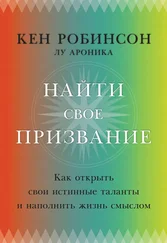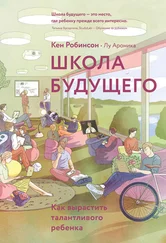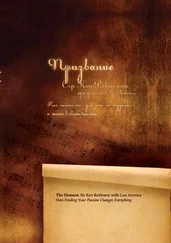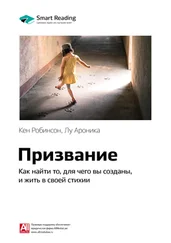Кен Робинсон - The Element
Здесь есть возможность читать онлайн «Кен Робинсон - The Element» весь текст электронной книги совершенно бесплатно (целиком полную версию без сокращений). В некоторых случаях можно слушать аудио, скачать через торрент в формате fb2 и присутствует краткое содержание. Год выпуска: 2009, ISBN: 2009, Издательство: Penguin Books Ltd, Жанр: Самосовершенствование, на английском языке. Описание произведения, (предисловие) а так же отзывы посетителей доступны на портале библиотеки ЛибКат.
- Название:The Element
- Автор:
- Издательство:Penguin Books Ltd
- Жанр:
- Год:2009
- ISBN:9780141911250
- Рейтинг книги:3 / 5. Голосов: 1
-
Избранное:Добавить в избранное
- Отзывы:
-
Ваша оценка:
- 60
- 1
- 2
- 3
- 4
- 5
The Element: краткое содержание, описание и аннотация
Предлагаем к чтению аннотацию, описание, краткое содержание или предисловие (зависит от того, что написал сам автор книги «The Element»). Если вы не нашли необходимую информацию о книге — напишите в комментариях, мы постараемся отыскать её.
The Element — читать онлайн бесплатно полную книгу (весь текст) целиком
Ниже представлен текст книги, разбитый по страницам. Система сохранения места последней прочитанной страницы, позволяет с удобством читать онлайн бесплатно книгу «The Element», без необходимости каждый раз заново искать на чём Вы остановились. Поставьте закладку, и сможете в любой момент перейти на страницу, на которой закончили чтение.
Интервал:
Закладка:
On the other hand, I also meet people who’ve been highly successful in all kinds of fields who are passionate about what they do and couldn’t imagine doing anything else. I believe that their stories have something important to teach all of us about the nature of human capacity and fulfillment. As I’ve spoken at events around the world, I’ve found it’s real stories like these, at least as much as statistics and the opinions of experts, that persuade people that we all need to think differently about ourselves and about what we’re doing with our lives; about how we’re educating our children and how we’re running our organizations.
This book contains a wide range of stories about the creative journeys of very different people. Many of them were interviewed specifically for this book. These people tell how they first came to recognize their unique talents and how they make a highly successful living from doing what they love. What strikes me is that often their journeys haven’t been conventional. They’ve been full of twists, turns, and surprises. Often those I interviewed said that our conversations for the book revealed ideas and experiences they hadn’t discussed in this way before. The moment of recognition. The evolution of their talents. The encouragement or discouragement of family, friends, and teachers. What made them forge ahead in the face of numerous obstacles.
Their stories are not fairy tales, though. All of these people are leading complicated and challenging lives. Their personal journeys have not been easy and straightforward. They’ve all had their disasters as well as their triumphs. None of them have “perfect” lives. But all of them regularly experience moments that feel like perfection. Their stories are often fascinating.
But this book isn’t really about them. It’s about you.
My aim in writing it is to offer a richer vision of human ability and creativity and of the benefits to us all of connecting properly with our individual talents and passions. This book is about issues that are of fundamental importance in our lives and in the lives of our children, our students, and the people we work with. I use the term the Element to describe the place where the things we love to do and the things we are good at come together. I believe it is essential that each of us find his or her Element, not simply because it will make us more fulfilled but because, as the world evolves, the very future of our communities and institutions will depend on it.
The world is changing faster than ever in our history. Our best hope for the future is to develop a new paradigm of human capacity to meet a new era of human existence. We need to evolve a new appreciation of the importance of nurturing human talent along with an understanding of how talent expresses itself differently in every individual. We need to create environments—in our schools, in our workplaces, and in our public offices—where every person is inspired to grow creatively. We need to make sure that all people have the chance to do what they should be doing, to discover the Element in themselves and in their own way.
This book is a hymn to the breathtaking diversity of human talent and passion and to our extraordinary potential for growth and development. It’s also about understanding the conditions under which human talents will flourish or fade. It’s about how we can all engage more fully in the present, and how we can prepare in the only possible way for a completely unknowable future.
To make the best of ourselves and of each other, we urgently need to embrace a richer conception of human capacity. We need to embrace the Element.
CHAPTER ONE The Element
GILLIAN WAS ONLY eight years old, but her future was already at risk. Her schoolwork was a disaster, at least as far as her teachers were concerned. She turned in assignments late, her handwriting was terrible, and she tested poorly. Not only that, she was a disruption to the entire class, one minute fidgeting noisily, the next staring out the window, forcing the teacher to stop the class to pull Gillian’s attention back, and the next doing something to disturb the other children around her. Gillian wasn’t particularly concerned about any of this—she was used to being corrected by authority figures and really didn’t see herself as a difficult child—but the school was very concerned. This came to a head when the school wrote to her parents.
The school thought that Gillian had a learning disorder of some sort and that it might be more appropriate for her to be in a school for children with special needs. All of this took place in the 1930s. I think now they’d say she had attention deficit hyperactivity disorder, and they’d put her on Ritalin or something similar. But the ADHD epidemic hadn’t been invented at the time. It wasn’t an available condition. People didn’t know they could have that and had to get by without it.
Gillian’s parents received the letter from the school with great concern and sprang to action. Gillian’s mother put her daughter in her best dress and shoes, tied her hair in ponytails, and took her to a psychologist for assessment, fearing the worst.
Gillian told me that she remembers being invited into a large oak‐paneled room with leather‐bound books on the shelves. Standing in the room next to a large desk was an imposing man in a tweed jacket. He took Gillian to the far end of the room and sat her down on a huge leather sofa. Gillian’s feet didn’t quite touch the floor, and the setting made her wary. Nervous about the impression she would make, she sat on her hands so that she wouldn’t fidget.
The psychologist went back to his desk, and for the next twenty minutes, he asked Gillian’s mother about the difficulties Gillian was having at school and the problems the school said she was causing. While he didn’t direct any of his questions at Gillian, he watched her carefully the entire time. This made Gillian extremely uneasy and confused. Even at this tender age, she knew that this man would have a significant role in her life. She knew what it meant to attend a “special school,” and she didn’t want anything to do with that. She genuinely didn’t feel that she had any real problems, but everyone else seemed to believe she did. Given the way her mother answered the questions, it was possible that even she felt this way.
Maybe, Gillian thought, they were right.
Eventually, Gillian’s mother and the psychologist stopped talking. The man rose from his desk, walked to the sofa, and sat next to the little girl.
“Gillian, you’ve been very patient, and I thank you for that,” he said. “But I’m afraid you’ll have to be patient for a little longer. I need to speak to your mother privately now. We’re going to go out of the room for a few minutes. Don’t worry; we won’t be very long.”
Gillian nodded apprehensively, and the two adults left her sitting there on her own. But as he was leaving the room, the psychologist leaned across his desk and turned on the radio.
As soon as they were in the corridor outside the room, the doctor said to Gillian’s mother, “Just stand here for a moment, and watch what she does.” There was a window into the room, and they stood to one side of it, where Gillian couldn’t see them. Nearly immediately, Gillian was on her feet, moving around the room to the music. The two adults stood watching quietly for a few minutes, transfixed by the girl’s grace. Anyone would have noticed there was something natural—even primal—about Gillian’s movements. Just as they would have surely caught the expression of utter pleasure on her face.
At last, the psychologist turned to Gillian’s mother and said, “You know, Mrs. Lynne, Gillian isn’t sick. She’s a dancer. Take her to a dance school.”
Читать дальшеИнтервал:
Закладка:
Похожие книги на «The Element»
Представляем Вашему вниманию похожие книги на «The Element» списком для выбора. Мы отобрали схожую по названию и смыслу литературу в надежде предоставить читателям больше вариантов отыскать новые, интересные, ещё непрочитанные произведения.
Обсуждение, отзывы о книге «The Element» и просто собственные мнения читателей. Оставьте ваши комментарии, напишите, что Вы думаете о произведении, его смысле или главных героях. Укажите что конкретно понравилось, а что нет, и почему Вы так считаете.












